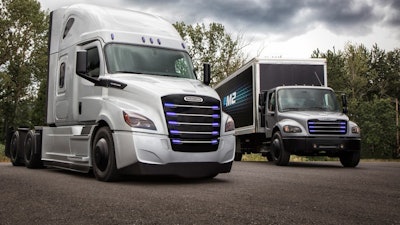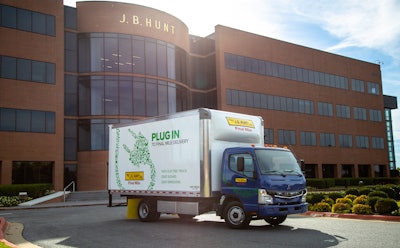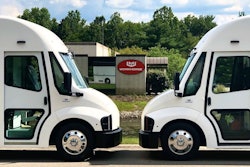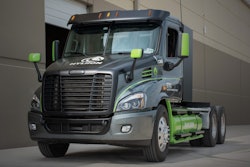
The governors of 15 states on Tuesday pledged to work collaboratively toward the decarbonization of commercial vehicles.
California, Connecticut, Colorado, Hawaii, Maine, Maryland, Massachusetts, New Jersey, New York, North Carolina, Oregon, Pennsylvania, Rhode Island, Vermont, and Washington, along with the District of Columbia, issued a Memorandum of Understanding (MOU) – dubbed the Multi-State Medium- and Heavy-Duty Zero Emission Vehicle MOU – that outlines a coordinated effort to expedite the deployment of zero-emission medium- and heavy-duty vehicles.

“Transportation impacts our business, our customers and our supply chain every day,” said Steven Moelk, fulfillment project implementation manager at IKEA Retail U.S., who adds that IKEA has committed to making 100% of its home deliveries in zero emission vehicles by 2025.
Similarly, DHL Express has committed to operating 70% of its first and last mile services with zero-emission solutions globally, also by 2025.
“Transportation and logistics companies are an important part of the solution,” DHL CEO Greg Hewitt said in support of Tuesday’s MOU, “and policies that support the uptake of electric and zero emission vehicles present a significant opportunity for companies and participating states.”
DHL and IKEA are also members of the Corporate Electric Vehicle Alliance, a platform of major companies and fleet operators working to accelerate corporate uptake of electric vehicles.
Tuesday’s MOU is complementary of other cross-state policies, like the regional Transportation & Climate Initiative (TCI), and further demonstrates how states are leading the way to decarbonize transportation. This multi-state initiative is vital for enabling the policies and regulations, and cost-effective vehicle electrification needed to achieve state climate commitments and air quality improvement goals.
PepsiCo has made significant investments in the implementation of zero-emission vehicles, and its electric vehicle fleet has already achieved 12 million, all-electric miles.
“Smart policies to increase the deployment of zero-emission medium- and heavy-duty vehicles is an important step to continue to reduce environmental impact in the transportation industry,” said Mike O’Connell, vice president of supply chain, PepsiCo., “and we support collaborative approaches to do so.”
Earlier this month, 37 businesses and investors – including fleet operators and shippers like DHL, IKEA North American Services, PepsiCo, and Unilever – sent a statement of support to the 15 state governors and the Mayor of Washington D.C., highlighting the long-term cost savings and benefits that can be captured by decarbonizing commercial vehicles and underscoring policy innovation as a necessary element to expedite the market transition.
“Major businesses and institutions support state efforts to transition to zero emission vehicles because it will generate significant economic, social and environmental benefits,” said Alli Gold Roberts, director of state policy for sustainability nonprofit Ceres. “Transportation is the greatest source of greenhouse gas emissions in the U.S., and trucks and other heavy-duty vehicles are responsible for an increasingly larger share of emissions. Forward-looking leadership and coordinated action between states is essential for developing the market-enabling levers that will drive electric truck deployment at the pace and scale needed to tackle the climate crisis.”











